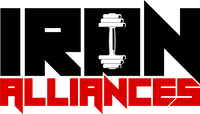
Most lifters think the solution to a plateau is grinding harder. But when your results are flatlining, the issue often isn’t effort—it’s inefficiency. Progress comes from stimulus and recovery working together, not from just piling on volume.
Frustrated from doing more and seeing less? Get matched with a coach who builds smarter plans—not just harder ones →
You might be sweating more and adding sets, but without a smart plan, you're just exhausting your recovery bandwidth. The body responds to targeted stimulus—not chaos.
Sarah was training 6 days a week with supersets and minimal rest. She wasn’t lazy—she was obsessed. But she hadn’t made a strength gain in months. After a coach cut her volume by 30%, added structured progression, and built in rest days, she hit a 15lb squat PR in 5 weeks. Hard work wasn't the problem—inefficient work was.
Smart training means targeting bottlenecks. That means:
It’s not less effort—it’s better effort.
If you're not tracking these, you're guessing:
See this deeper breakdown on training variables that matter more than volume.
Training through fatigue, poor sleep, and joint pain isn’t discipline—it’s denial. If you’re constantly “grinding” but not growing, something is wrong. True strength comes from adaptation, not suffering.
This isn’t a call to be lazy. Effort is non-negotiable. But effort must be directed by strategy. Otherwise, you’re just accumulating stress with no outcome. The best lifters know when to push—and when to pull back.
Read the Stronger By Science guide to individualized programming for a science-based breakdown of smart periodization strategies.